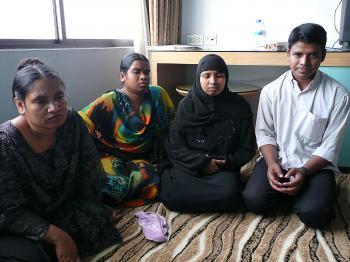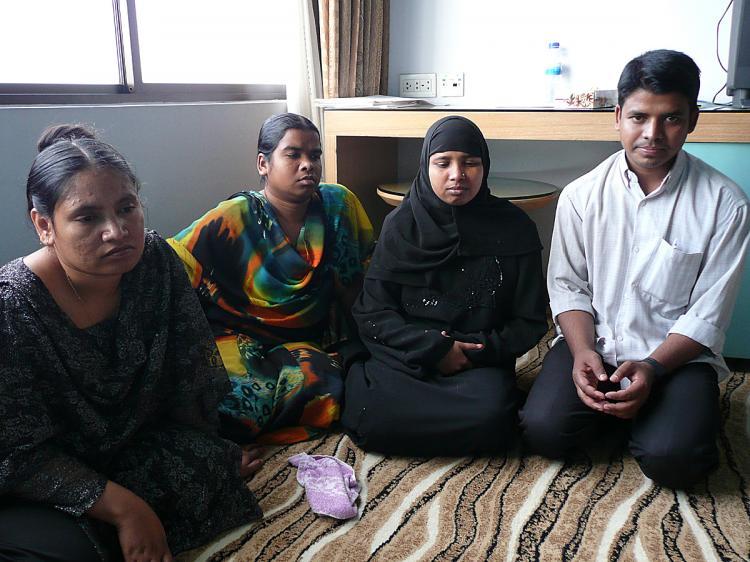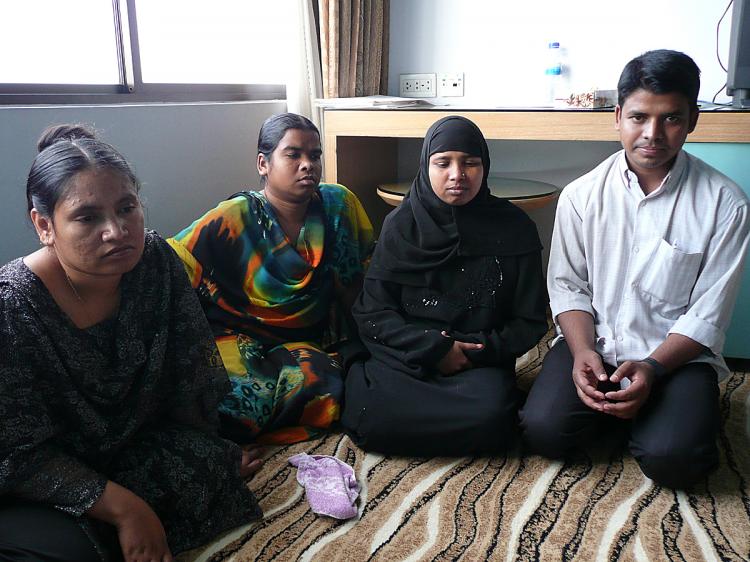Such is the description of the Musa Garments factory, operated in Jordan by Israelis, given in the U.S.-based NGO National Labor Committee’s (NLC) recent report. The factory produces clothes for Israeli fashion chains.
The employees, mostly foreign workers from Bangladesh and India, sew “Made in Israel” tags on at the end.
After a thorough investigation in Jordan in 2005-2006, the NLC found workers in slave-like conditions, and documented cases of beatings and rape.
The situation improved after the report, and the NLC established connections in the country. Since then, they have received daily phone calls from workers who complain about their employment conditions. One such tip-off led them to know about Musa Garments.
NLC representatives met with repatriated Bangladeshi workers who used to work at the factory, and say they were deported for going on strike in protest to their poor working conditions. NLC talked with each of them separately to verify the story, and also checked the claims against workers still in the factory in Jordan. Testimonies were unanimous.
Factories Migrating East
Charles Kernaghan, director of the National Labor Committee, told the Epoch Times in a phone interview that there’s a pressure on factories around the world to “produce more for less.”
“We’ve seen real acceleration of this ‘race to the bottom,’” he said. He says that about two million manufacturing jobs have been lost in the U.S. since December 2007, when the recession began. This gives companies the excuse to move off shore, he says. “Those jobs are never coming back.”
NLC also works on many cases in China. “China is just sucking down this global economy in terms of wages and benefits, and worker rights”, says Kernaghan. He argues that Chinese factories force long hours and little pay, and that even car engineers earn only 96 cents per hour.
“There are six million Bengals who are guest workers around the world. It invites abuse because the workers are defenceless.” As strangers in foreign lands, they don’t know the local laws, don’t speak the language, and are in debt because they had to pay a fortune to get smuggled abroad.
Threats and Intimidation
The workers in Musa factory asked for their passports to be returned, or to at least get a photocopy, but it didn’t help. Similarly, when the men asked for a bubbler [a drinking fountain] to be installed on the factory floor, a supervisor told them that if they kept talking like that he would cut off their reproductive organs.
Until December 2008, they worked 12.5 to 13.5 hours a day, seven days a week, and were not paid the overtime premium legally due. After the recession they were required to speed up production. Sewers who had a target of 30 pieces an hour now had to do 40. When one worker said the production goal was unrealistic, a supervisor slapped her.
After striking, some workers were arrested and deported. Now supervisors also make threats of imprisonment.
Kobi Hayat, owner of the Pashut fashion chain, whose clothes are produced at Musa Garments, told the Epoch Times that they don’t know where their products are made, and that they work through a subcontractor.
They asked to meet with the subcontractor, they said, in order to get a clear explanation and ask him to work through other factories.
The owners of Musa Garments, who had previously been questioned by Israeli newspaper Ha'aretz, responded by saying that the NLC’s report was untrue, and that the workers lied. They did not elaborate.






